Gallup: Democratic Voters Much Less Enthusiastic About November Than Republicans
In the end, an election isn’t decided by polls, it isn’t decided by pundits, it isn’t decided by Twitter hashtag wars, and it isn’t even decided by which candidate makes the most gaffes. In the end, an election is decided by who shows up to vote, and in an election such as this one where it’s clear that the voters are sharply divided, turnout on Election Day is going to be exceedingly important. That’s why Democrats should be concerned by this latest Gallup Poll:
PRINCETON, NJ — Democrats are significantly less likely now (39%) than they were in the summers of 2004 and 2008 to say they are “more enthusiastic about voting than usual” in the coming presidential election. Republicans are more enthusiastic now than in 2008, and the same as in 2004.
These results are based on a July 19-22 USA Today/Gallup poll. They suggest a shift in Republicans’ and Democrats’ orientation to voting in the coming presidential election compared with the last two, with Republicans expressing more voting enthusiasm. The current 51% to 39% Republican advantage in voter enthusiasm is slightly larger than the 53% to 45% GOP advantage Gallup measured in February of this year.
The voting enthusiasm measure gives a sense of Americans’ motivation to turn out and vote but probably also their expectations of their preferred party’s chances of winning. Thus, the Republican advantage may indicate a greater likelihood of voting among Republicans but also greater optimism about a Republican victory than was the case in 2008. In turn, Democrats are probably less optimistic about their chances of winning than they were in 2008.
Gallup has found a relationship between voting enthusiasm and the outcome of midterm congressional elections, with the party that has the advantage generally faring better in the elections. That pattern also held in the 2008 presidential election, with Democrats reporting greater enthusiasm throughout the year and Barack Obama winning the election. The 2004 data provided less guidance as to the eventual winner, as the Republicans (68%) and Democrats (67%) had similar scores at the time of the election, which George W. Bush won narrowly.
The chart tells the tale:
Of course, it’s also the case that Americans as a whole aren’t necessarily all that enthused about voting this year:
Overall, Americans’ voting enthusiasm this year has lagged behind what it was in 2004 and 2008. The current level of enthusiasm is down slightly from what it was in the summer of 2008, but that followed a significant drop after the 2008 primaries, from 62% to 48%. Voting enthusiasm began to pick up again in the fall of 2008, and by the time of the 2008 election it was similar to 2004 levels.
I touched on some of the reasons why voters might not be too enthusiastic in my last post, and while it may be the case that overall enthusiasm will pick up once voters start paying more attention to the race, I tend to suspect that turnout in 2012 will be below where it was four years ago.
Getting back to the issue of Democratic enthusiasm, this is the kind of issue that could be important in swing states especially. Obviously, the state of the economy and general disappointment in the way Obama’s first term has worked out are playing a roll here and, while these people may not vote for Romney in November staying home would be just the same depending on what state they live in.
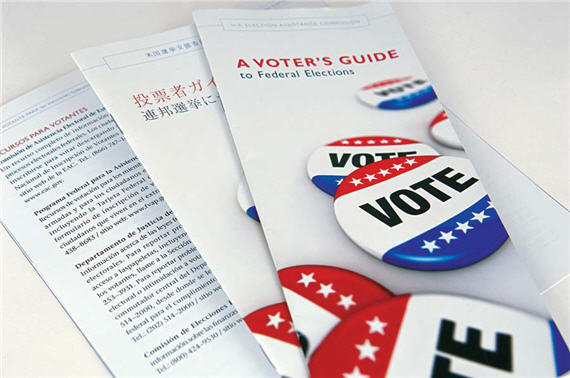
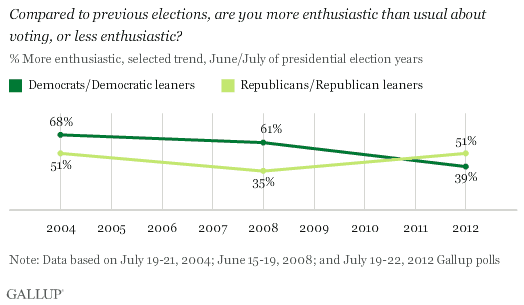


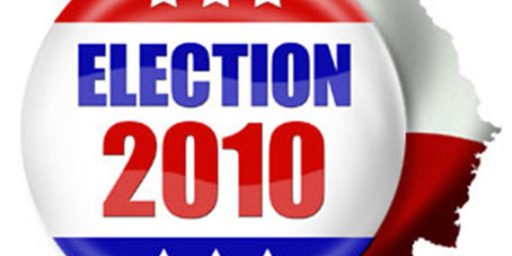
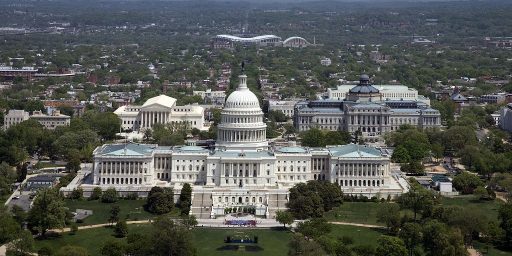
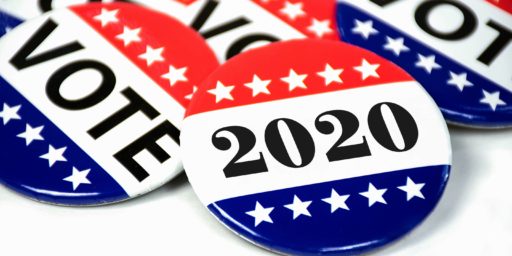

Well, playing defense (“re-elect the incumbent”) is inherently less exciting and motivating than playing offense (“Throw the bums out”). One thing the GOP is undeniably good at, organizationally speaking, is motivating its base. That’s why every single Republican ad you’re going to see will be based entirely around FEAR – it’s great for that.
I don’t really buy into the whole motivation thing. Democrats always turn out for presidential elections. Granted, the high school and college blocs won’t actually vote, but that’s no different from any election cycle. If Obama loses it won’t be because of a lack of “enthusiasm” among the various Democrat groups. It’ll be because he couldn’t sufficiently hold down Romney’s inevitable margin among white middle class moderates and Independents.
What’s interesting about this is that the trendlines consistently underpredict Republican enthusiasm—at least if it’s an indicator of turnout. Bush won in 2004 and 2010 was a GOP landslide. Yet Republicans were less enthusiastic those years—and every year until now?